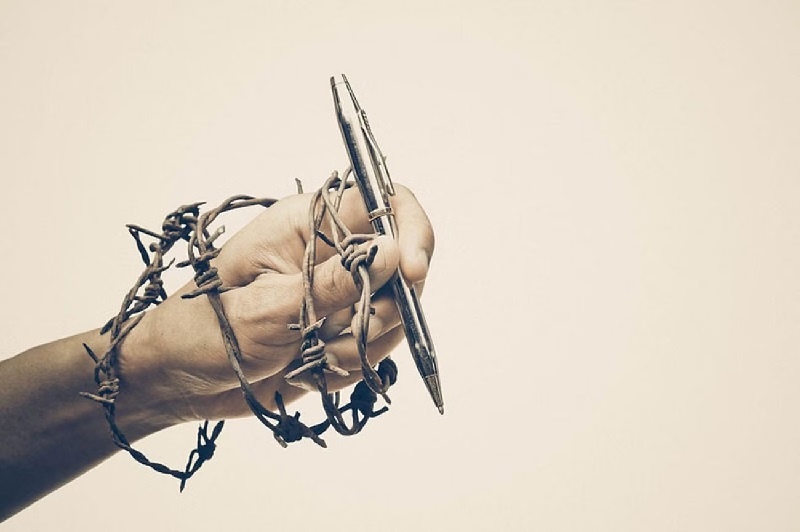Staff Reporter :
Bangladesh has fallen two places in press freedom compared to last year, indicating a significant downturn in the country’s media landscape, as per the 2024 World Press Freedom Index released by Reporters Without Borders.
Bangladesh now ranks 165th out of 180 countries with a score of 27.64. In South Asia, only Afghanistan ranks lower in terms of media freedom, while other countries including India, Pakistan, Sri Lanka, Maldives, Nepal, and Bhutan are ahead.
Last year, Bangladesh ranked 163rd with a score of 35.31, showing a progressive decline from 2022’s 36.63 (162nd place) and 2021’s 50.29 (152nd place).
Meanwhile, Norway continues to lead the global index with a score of 91.89, followed by Denmark, Sweden, the Netherlands, Finland, Estonia, Portugal, Ireland, Switzerland, and Germany in the top ten.
In South Asia, Nepal now leads with a rank of 74th and a score of 60.52, followed by the Maldives and Bhutan, which has dropped to third place from first, now ranking 147th with a score of 37.29. Sri Lanka, Pakistan, and India are positioned fourth, fifth, and sixth respectively within the region.
Their global rankings are 150th, 152nd, and 159th respectively. Afghanistan remains at the bottom in South Asia, ranked 178th globally with a score of 19.09.
The report highlights that the Asia-Pacific region continues to be one of the most challenging for journalists, with Myanmar, China, North Korea, Vietnam, and Afghanistan being particularly perilous.
The index considers various criteria including political context, legal framework, economic environment, socio-cultural context, and safety to assess the level of press freedom in each country.
It details how Bangladesh’s state media—Bangladesh Television (BTV), Bangladesh Betar, and Bangladesh Sangbad Sangstha (BSS) news agency—primarily serve as government mouthpieces. Although there are numerous private sector media entities, such as 3,000 print media outlets, 30 radio stations, 30 TV channels, and several hundred news websites, none are independent or owned by the opposition. Popular pro-government channels include Somoy TV and Ekattor TV, whereas leading dailies like Prothom Alo and Daily Star manage some level of editorial independence.
The report also critiques the political use of media in Bangladesh since its independence in 1971, noting that the current government under Prime Minister Sheikh Hasina, in power since 2009, continues this trend.
Media personnel face violence from political supporters and judicial harassment aimed at suppressing dissent.
This year, the introduction of the Cyber Security Act—similar to the notorious Digital Security Act—has further endangered journalistic freedom, allowing for warrantless searches, arrests, and severe penalties for dissenting voices.
Furthermore, the media landscape is dominated by a few powerful businessmen who use their outlets to influence rather than inform, often aligning with government interests to ensure profitability. This compromises editorial independence and the objectivity of news coverage.
In terms of safety, the report observes that journalists in Bangladesh face threats from police, political activists, and organized crime, with female journalists particularly vulnerable to harassment and online hate campaigns.
The pervasive impunity for such acts and the harsh conditions under which journalists are detained highlight the perilous state of press freedom in the country.




